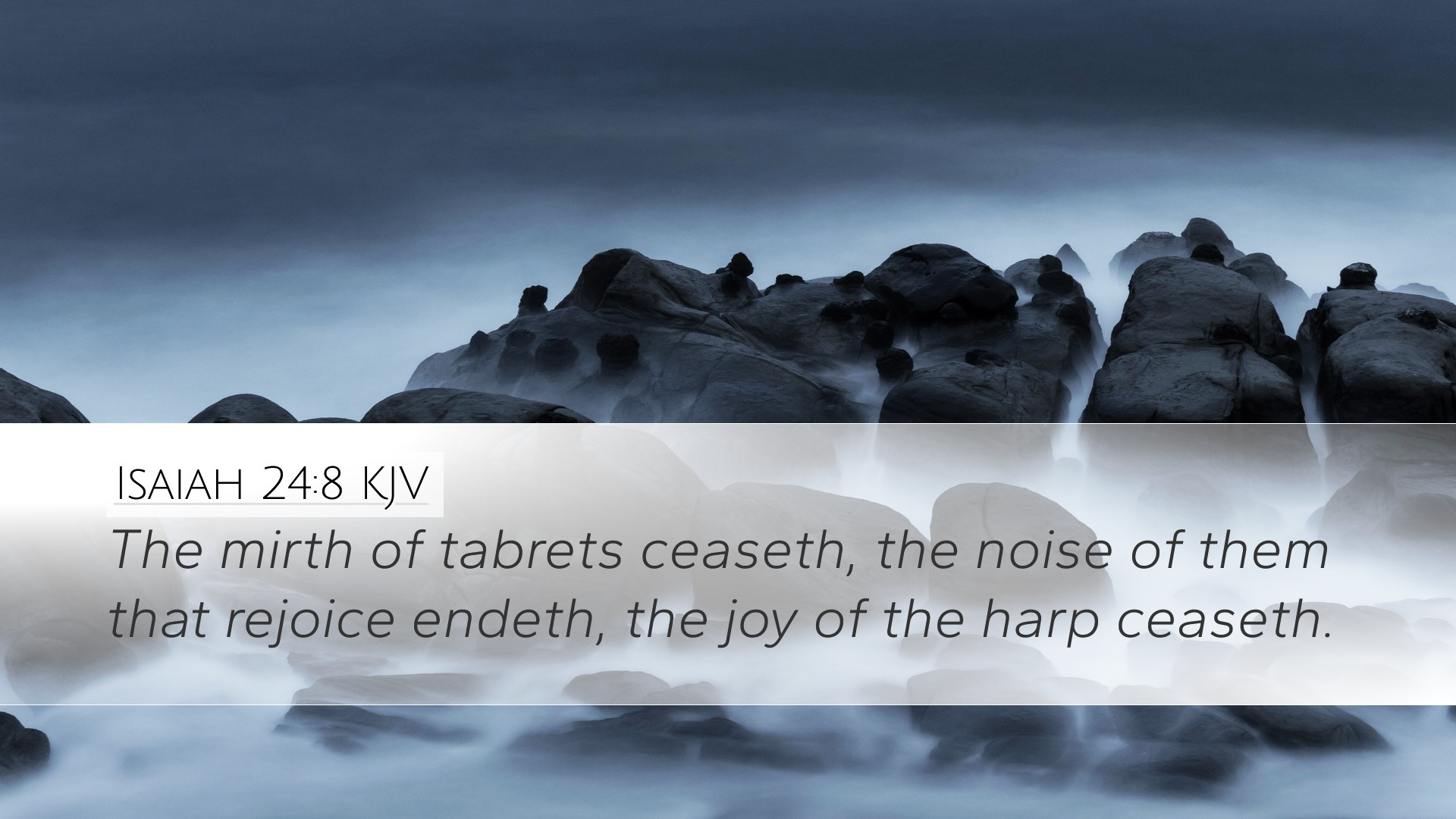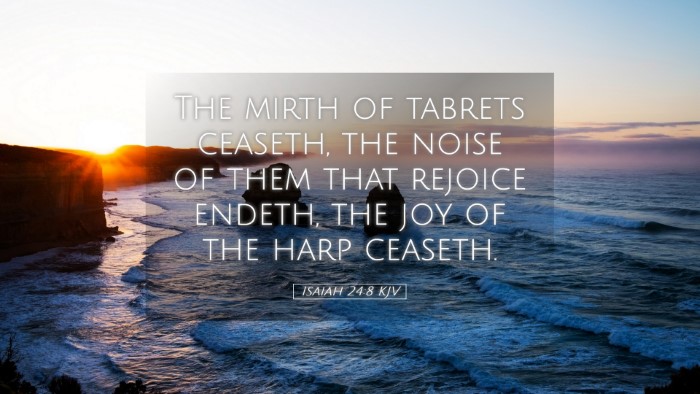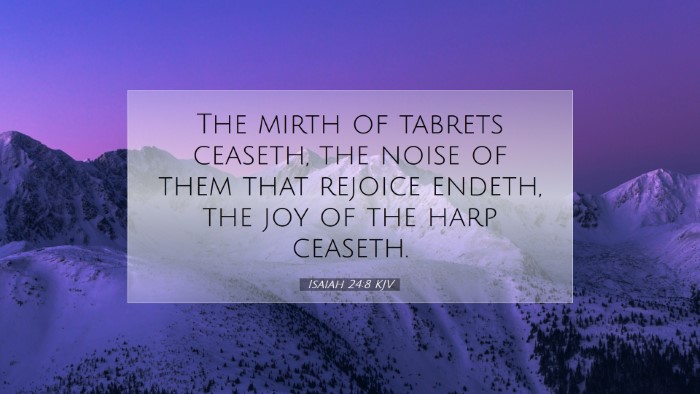Commentary on Isaiah 24:8
Isaiah 24:8 states, "The mirth of timbrels ceaseth, the noise of them that rejoice endeth, the joy of the harp ceaseth." This verse serves as a poignant reflection on the cessation of joy and celebration amidst divine judgment upon a corrupt and sinful world.
Introduction
The context of Isaiah 24 revolves around a prophecy concerning the judgment of God upon the earth, particularly focusing on its inhabitants who have turned away from Him. In exploring this verse, we draw upon the insights of prominent commentators to illuminate its meaning and application.
Thematic Analysis
This passage highlights the theme of joy transformed into sorrow due to catastrophic events. It emphasizes the totality of distress that befalls those who engage in frivolity amidst spiritual decay.
1. The End of Celebration
Matthew Henry emphasizes the complete cessation of merrymaking. He notes, "The mirth of timbrels ceaseth," suggesting that worldly amusements that once brought joy are rendered meaningless in the face of divine wrath. He connects this to the broader notion of judgment where worldly distractions are stripped away.
2. The Impact of Divine Judgment
Albert Barnes discusses the implications of God’s judgment. He comments on the mourning that befalls the people, stating that festive sounds indicate societal morale and stability. When these sounds fade, it signifies a profound shift in the human experience due to the overwhelming presence of God’s justice. The cessation of music and joy symbolizes the loss of hope and peace.
3. Grief as a Response to Judgment
Adam Clarke adds depth by analyzing the emotional response of individuals in the face of divine judgment. He remarks that the loss of joy leads to introspection about their spiritual state. "The joy of the harp ceaseth," reflects not just the absence of physical joys, but a deeper spiritual desolation and an invitation to repentance.
Historical Context
Understanding the historical context of Isaiah provides clarity to the gravity of this verse. The prophet Isaiah speaks to a people accustomed to various forms of entertainment and revelry, which often distract from their allegiance to God. The looming threat of judgment presents an urgent call for reflection and repentance.
Ancient Israeli Culture
In ancient Israel, music and celebration played significant roles in religious and societal gatherings. Timothy while noting this cultural backdrop, it is evident that the cessation of such joys signifies not only personal loss but a break in communal worship and identity.
Theological Significance
This verse encapsulates the duality of God’s nature: a God of justice who does not ignore sin, and a God who desires genuine joy in communion with His people. The absence of mirth as laid out in this verse serves as a critical reminder of the consequences related to spiritual neglect.
1. Human Responses to Divine Proclamation
As seen through Henry, Barnes, and Clarke, the immediate human reaction to divine judgment often includes mourning and grief. This sense of loss compels individuals to reassess their lives, motivations, and relationship with God.
2. Call to Repentance
In reading Isaiah 24:8, the contemplative pastor is urged to emphasize the necessity of genuine repentance among their congregations. Each cessation of joy should provoke an examination of the heart regarding their devotion and actions.
Practical Applications
This verse and its accompanying commentary offer several practical applications for contemporary readers:
-
Self-Reflection: Regularly assess aspects of your life that distract from a deep relationship with God. The absence of joy may indicate a need for spiritual renewal.
-
Community Worship: Engage in communal worship with an understanding of the significance of joy in glorifying God, while also being aware of the social and spiritual dynamics at play.
-
Call to Action: The church should not shy away from proclaiming the gravity of sin and its consequences. There is value in warning congregants about the dangers of neglecting a relationship with God.
Conclusion
Isaiah 24:8 stands as a sobering reminder of the realities of divine judgment and its repercussions on human joy. In drawing from the rich insights of esteemed commentaries, we can better appreciate the intricacies of this verse. Through the cessation of joyous music, we are invited into a deeper understanding of our spiritual state, the necessity of repentance, and the weight of God’s justice and mercy.


